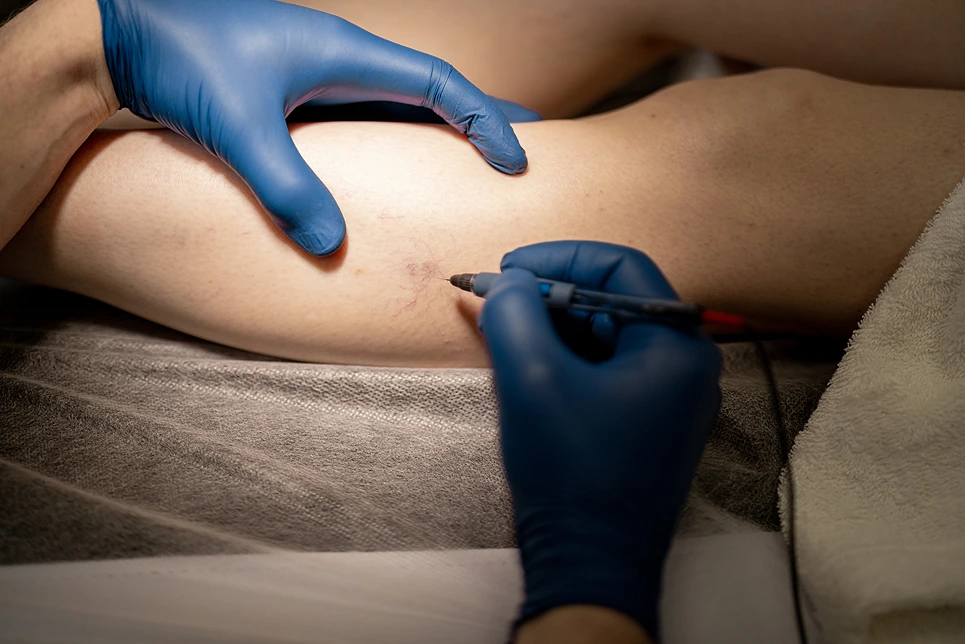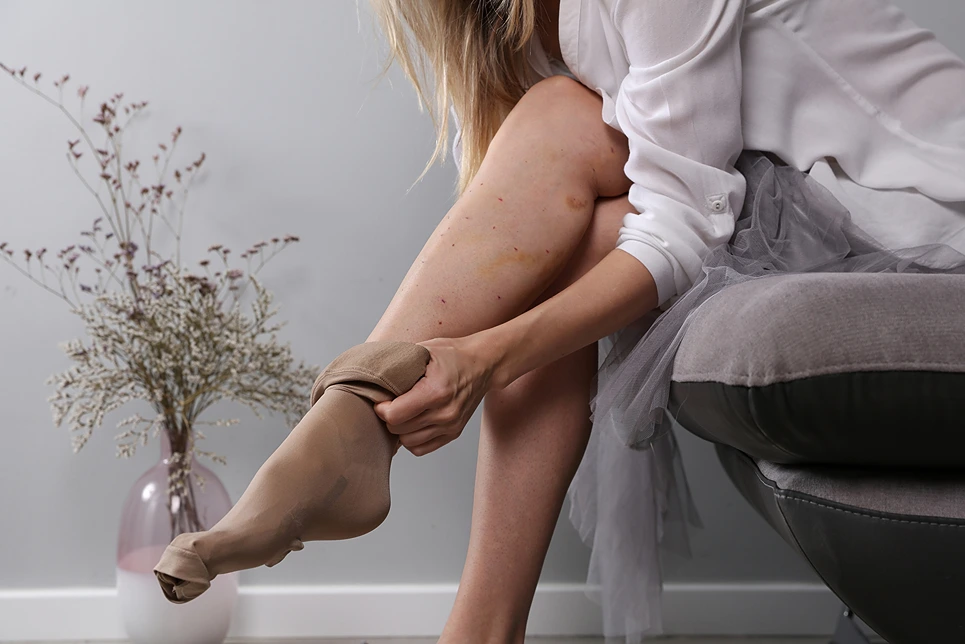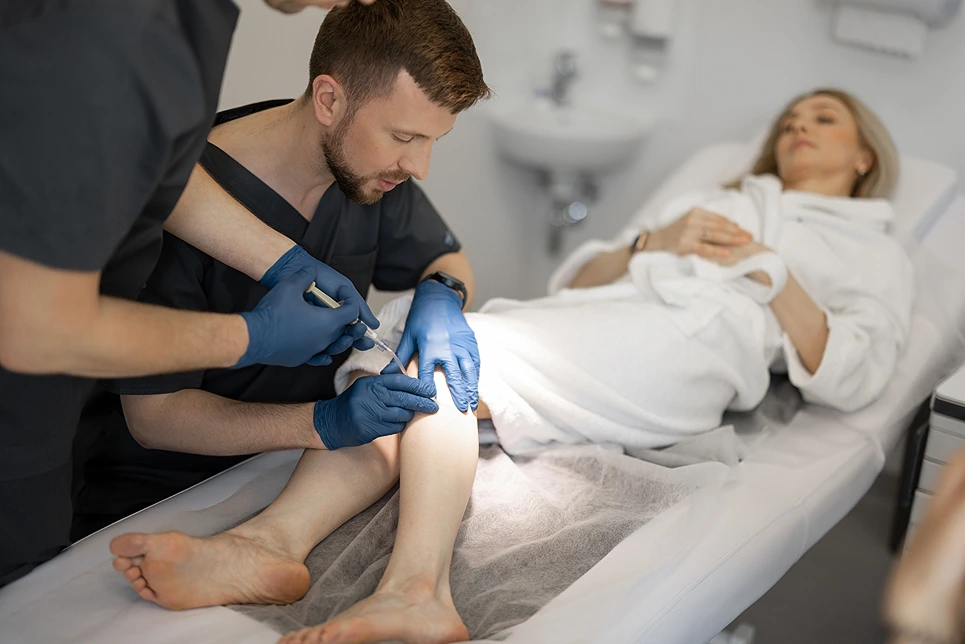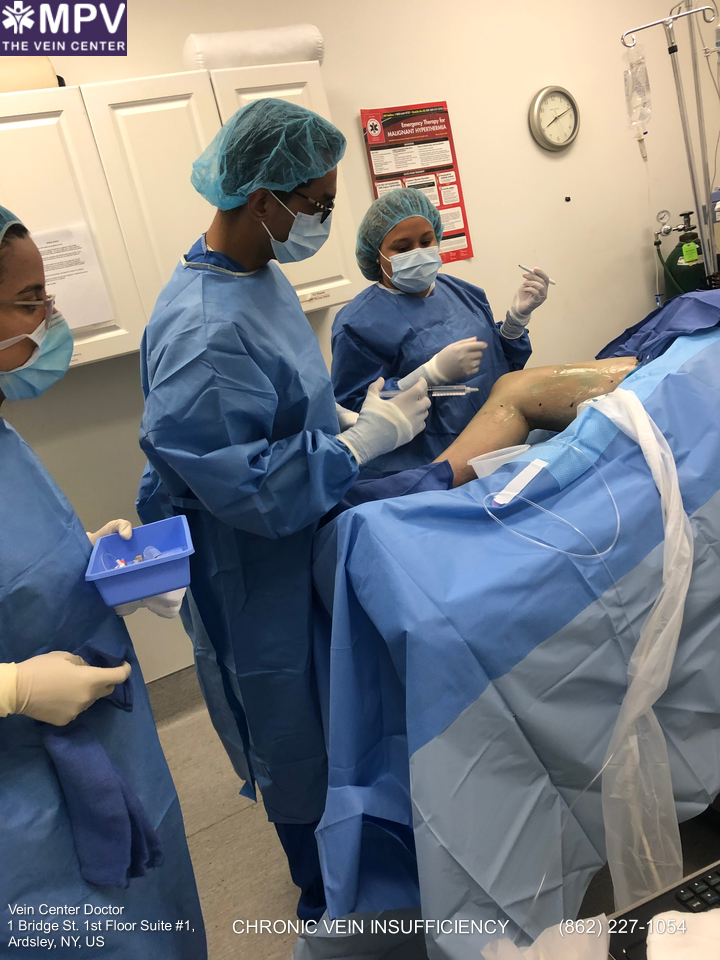
Are you aware that chronic venous insufficiency can be effectively managed with a range of treatment options?
In this guide, you'll explore the comprehensive solutions available to address the symptoms and challenges associated with this condition.
From lifestyle adjustments and medications to advanced procedures like endovenous laser ablation and radiofrequency ablation, there are numerous approaches to alleviate swelling, pain, and ulcers.
By gaining expert insights and actionable advice, you'll be equipped with the knowledge to take charge of your condition and seek the most effective treatments.
Whether it's for yourself or a loved one, this article provides essential information for making informed decisions about managing chronic venous insufficiency.
Living with unwanted veins is a thing of the past, when you can simply schedule a free consultation with Vein Center Doctor and find your ideal solution today.
Chronic venous insufficiency occurs when the veins in your legs have difficulty returning blood to your heart, typically due to weakened or damaged valves.
This condition can lead to swelling in your legs and ankles, pain, fatigue, skin discoloration, varicose veins, and ulcers.
Risk factors for chronic venous insufficiency include obesity, older age, family history of the condition, and a history of blood clots.
While there's no cure for chronic venous insufficiency, there are effective treatments available. Surgery, such as microincisional phlebectomy and sclerotherapy, can help treat varicose veins, while compression stockings can reduce swelling and promote healing of leg ulcers.
Lifestyle changes, such as elevating your legs, exercising regularly, and wearing compression stockings, can also help manage the symptoms.
Early diagnosis and treatment are crucial in preventing complications. If you experience any signs and symptoms, consult a healthcare professional promptly.
If you experience persistent swelling in your legs and ankles, along with skin discoloration and leg ulcers, these could be signs of chronic venous insufficiency. It's important to recognize these symptoms and seek medical advice for a proper diagnosis. Here are key indicators and diagnostic methods to consider:
Early detection and diagnosis are crucial for effective treatment of this chronic condition. Consulting a healthcare professional is essential to manage symptoms and prevent potential complications.
If you're experiencing these symptoms, contact The Vein Center for proper evaluation and personalized care.
To effectively manage chronic venous insufficiency, consistently elevate your legs when sitting or lying down. By doing so, you can improve venous return and reduce swelling.
Regular exercise promotes better blood flow and muscle tone, aiding in the prevention of CVI symptoms. It's essential to maintain a healthy weight as excess weight can exacerbate CVI.
Wearing compression stockings helps apply pressure to the legs, supporting venous return and preventing swelling.
Take breaks from prolonged sitting or standing to walk around and avoid tight clothing, which can restrict blood flow.
Hydration and avoiding smoking are also crucial for managing CVI symptoms.
Below is a table of effective lifestyle changes for preventing and managing chronic venous insufficiency:
| Lifestyle Changes | Benefits |
| Elevating legs | Improves venous return and reduces swelling |
| Regular exercise | Promotes better blood flow and muscle tone |
| Compression stockings | Applies pressure to support venous return |
| Avoiding tight clothing | Prevents restriction of blood flow |

Consider non-surgical options for managing chronic venous insufficiency, such as compression stockings and medication. These treatments can help alleviate symptoms and improve your quality of life. Here are some additional tips for managing chronic venous insufficiency:
These non-surgical options, along with lifestyle changes, can play a crucial role in managing chronic venous insufficiency and preventing complications.
Remember, early diagnosis and treatment are essential in improving your overall well-being.
Surgical procedures offer effective interventions for chronic venous insufficiency, addressing underlying issues that contribute to the condition.
Ablation techniques such as endovenous laser ablation or radiofrequency ablation (RFA) are minimally invasive procedures that use heat to close off varicose veins, improving blood flow.
In cases of deep vein thrombosis, valve repair surgery may be attempted, although results are mixed.
For venous ulcers, skin flaps or skin grafts can be used to cover and heal the ulcers. Surgical options can provide significant relief for those with severe symptoms or ulcers.
If you're experiencing persistent symptoms, consulting with a phlebologist can provide new options and tailored recommendations for your condition. The Vein Center offers state-of-the-art surgical interventions overseen by our renowned medical director, Dr. Rahul Sood, to help you find relief from chronic venous insufficiency.

Managing complications of chronic venous insufficiency involves addressing specific symptoms and preventing further progression. When it comes to treating varicose veins and ulcer dermatology, it's crucial to take proactive measures to avoid potential complications. Here are some essential points to consider:
Symptom Management
Remember, early intervention and diligent management are key to preventing the worsening of chronic venous insufficiency complications.
By staying proactive and seeking appropriate medical care, you can effectively manage potential complications and improve your overall quality of life.
For comprehensive care and proactive management of chronic venous insufficiency complications, visit The Vein Center for expert guidance and treatment options.
To effectively manage chronic venous insufficiency, start by incorporating supportive therapies into your daily routine. Supportive therapies play a crucial role in alleviating symptoms and promoting healing.
Endovenous laser ablation and radiofrequency ablation (RFA) are minimally invasive procedures that use heat to close off varicose veins, reducing pain and swelling.
Compression therapy can aid in healing ulcers and preventing their recurrence. It's important to keep ulcers clean and dry, and in some cases, skin grafts may be necessary to cover ulcers that aren't healing properly.
Moreover, wearing compression stockings, avoiding tight clothing, and staying hydrated are lifestyle changes that can significantly improve your condition.

If you have chronic venous insufficiency, long-term care will involve consistent use of supportive therapies and lifestyle adjustments to manage symptoms and improve your overall well-being.
It's important to understand that while there's no cure for chronic venous insufficiency, there are treatments available to help alleviate symptoms and improve your quality of life.
To effectively manage your condition, consider the following:
Lifestyle Adjustments:
Medical Interventions:
With the right approach and support, you can find relief and take proactive steps towards better health.
Contact The Vein Center today and learn the best options for managing Chronic Venous Insufficiency.
Find exactly what you need to get rid of your vein-related problems. Dr. Sood and the rest of our team at Vein Center Doctor are ready to help: schedule your free consultation today.
Most Insurance is accepted for treatment